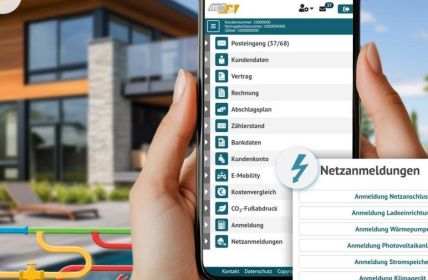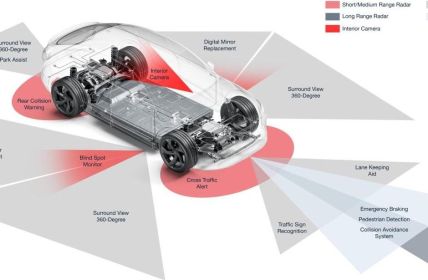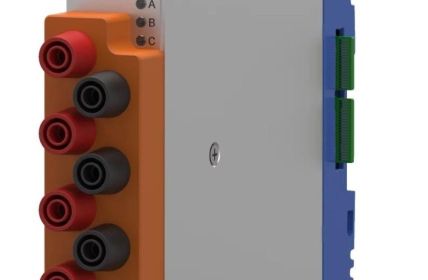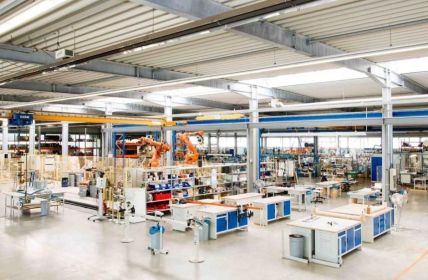ERFA circles play a significant role in construction planning by enabling an efficient exchange of experience. Through regular dialog and collaboration between planners, architects and engineers, best practices are discussed and current challenges are addressed. The valuable exchange of knowledge promotes continuous development of planning processes and helps to ensure that construction projects are planned more successfully and future-proof. The ERFA circles also serve as a networking platform where experts can share their expertise and learn from each other, thus advancing the entire construction industry.
Table of Contents: What awaits you in this article
Team around Dr. Knut Marhold promotes industry networking
The increasing dissemination of the “Planer am Bau” quality standard has led to a situation in which architecture and engineering firms are increasingly looking for ways to exchange ideas with other professionals. A particularly effective and proven option for this is the moderated exchange of experience in the ERFA circles, which were initiated by Dr. Knut Marhold, one of the founding members of “Planer am Bau”. For over two decades, these circles have enabled members to learn about alternative approaches and solutions, highlight their individual strengths, avoid common mistakes, and share valuable practical tips. In this article, we look in detail at the key benefits that construction design firms can achieve through their participation in ERFA circles.
Exchange of experience: expand knowledge
Effective cooperation in construction planning is strengthened by the entrepreneurial exchange of experience. The ERFA circles offer members the unique opportunity to discover other approaches to solutions and to promote their individual strengths. The intensive exchange of experiences and insights enables participants to gather practical tips and tricks and seamlessly integrate them into their own office processes. Fostering this open dialog among like-minded people creates a creative and productive working atmosphere that has a positive impact on the overall performance and innovative strength of the entire company.
Continuous improvement with ERFA circle
Construction planning offices increasingly rely on ERFA circles to master their similar challenges in an innovative way. The exchange of solution approaches and experiences among the members enables fruitful cooperation, which provides valuable impulses and ideas for the continuous improvement process (CIP) in each company. Compared to expensive internal solutions or the commissioning of external management consultants, ERFA circles prove to be a cost-efficient and extremely effective method for sustainable corporate development.
Teamwork as a success factor: give and take
The ERFA circle in construction planning enables a continuous exchange of experience between companies, as proven methods are compared through benchmarking and best practices are successfully adopted. The competent leadership by Dr.-Ing. Knut Marhold and the IWW Institute promotes a technically sound and effective exchange of knowledge. The wide range of topics that can be discussed at the regular meetings – from office organization to order procurement, social media, project presentations and BIM to business office metrics and comparisons – offer participants an enriching opportunity to further develop and optimize their work processes.
Productive ERFA Circles: 10 Guidelines
In an ERFA circle, the clear rules provide orientation and structure for participants to exchange innovative ideas and best practices, leading to continuous development of construction planning and sustainable project implementation.
In construction planning, harmony between the participants and the facilitator plays a key role in the success of the collaboration. Trust forms the foundation on which project participants can build to work together on solutions. Open communication allows ideas to be exchanged and learning from each other. Active participation of the participants in the discussions and decision-making processes promotes the implementation of innovative concepts and increases the efficiency of the entire construction project.
The open exchange of information and experience is a fundamental aspect of construction planning that influences the success of ERFA work. In the ERFA circles, participants experience valuable help for self-help, which is effective both at the regular meetings and in everyday business life. Dealing openly with mistakes and negative experiences creates a positive learning culture and enables all participants to learn from the experiences made and thus to continuously expand their competencies and knowledge in construction planning.
Successful construction planning requires the active and equal participation of all companies and employees involved. Only through the open exchange of ideas and expertise can innovative solutions be developed. An important element for the success of the cooperation is the agreement that no employees may be poached from other offices. This arrangement creates trust and strengthens the togetherness of the group, since the focus is on the common goal. The ability to organize meetings flexibly according to the needs of the participants promotes efficient planning and implementation of the project.
Trusting atmosphere strengthens offices
By participating in the ERFA circles of Planer-am-Bau, construction planning offices are given an extremely effective opportunity to make use of the experience of their colleagues and to drive forward their continuous improvement process in a targeted manner. Many years of experience show that the moderated exchange of experience in institutionalized working groups is an extraordinarily valuable resource. Here, members have the opportunity to continuously exchange knowledge and openly discuss relevant topics, enabling them to implement optimized solutions in their companies. The clear rules of the game and the existing trust among the participants create a trusting and supportive atmosphere that sustainably promotes the success of each individual construction planning office.














